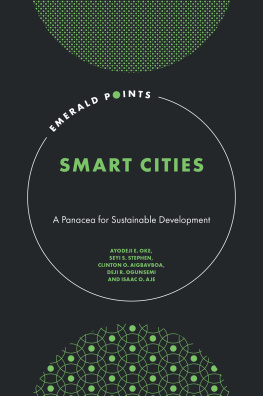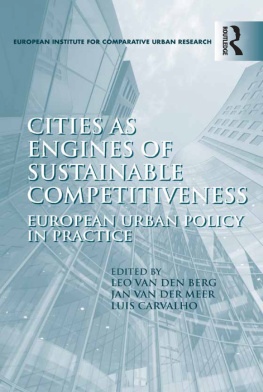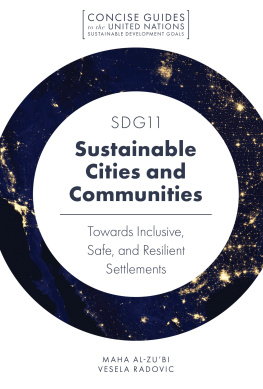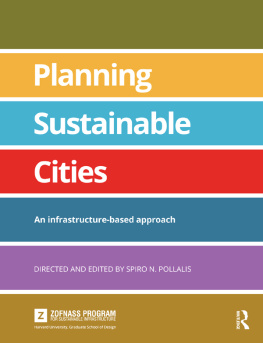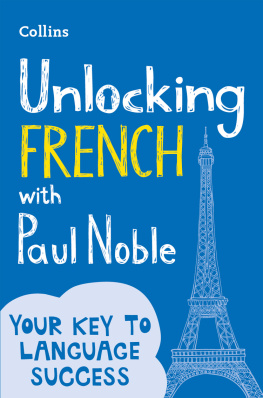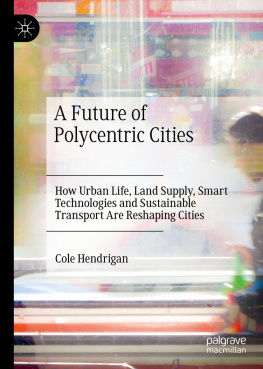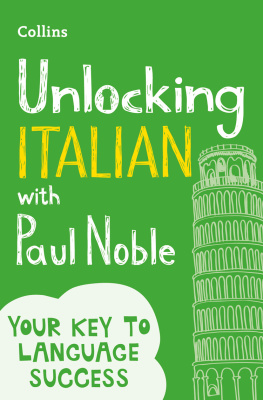Unlocking Sustainable Cities
Radical Geography
Series Editors:
Danny Dorling, Matthew T. Huber and Jenny Pickerill
Former editor: Kate Derickson
Also available:
In Their Place
The Imagined Geographies of Poverty
Stephen Crossley
Making Workers
Radical Geographies of Education
Katharyne Mitchell
Space Invaders
Radical Geographies of Protest
Paul Routledge
New Borders
Migration, Hotspots and
the European Superstate
Antonis Vradis, Evie Papada,
Joe Painter and Anna Papoutsi
Unlocking Sustainable Cities
A Manifesto for Real Change
Paul Chatterton
First published 2019 by Pluto Press
345 Archway Road, London N6 5AA
www.plutobooks.com
Copyright Paul Chatterton 2019
The right of Paul Chatterton to be identified as the author of this work has been asserted by him in accordance with the Copyright, Designs and Patents Act 1988.
This work is licensed under the Creative Commons Attribution-NonCommercial-NoDerivatives 4.0 International Licence (CC BY-NC-ND 4.0). Permission for reproduction is granted by the author and publisher free of charge for non-commercial purposes. To view a copy of the licence, visit http://creativecommons.org/licenses/by-nc-nd/4.0/legalcode or write to Creative Commons, PO Box 1866, Mountain View, CA 94042, USA.
British Library Cataloguing in Publication Data
A catalogue record for this book is available from the British Library
ISBN 978 0 7453 3702 9 Hardback
ISBN 978 0 7453 3701 2 Paperback
ISBN 978 1 7868 0363 4 PDF eBook
ISBN 978 1 7868 0365 8 Kindle eBook
ISBN 978 1 7868 0364 1 EPUB eBook
This book is printed on paper suitable for recycling and made from fully managed and sustained forest sources. Logging, pulping and manufacturing processes are expected to conform to the environmental standards of the country of origin.
Typeset by Stanford DTP Services, Northampton, England
Simultaneously printed in the United Kingdom and United States of America
Dedicated to all those who know we can still make a difference
Contents
Acknowledgements
There are many people I would like to thank for helping to shape this book. First, I would like to thank the Series Editors and especially Danny Dorling and Jenny Pickerill for encouraging me to write this book in the first place. At Pluto Press, David Castle, Robert Webb and Melanie Patrick have offered fantastic encouragement and support and deserve respect for backing this radical geography book series.
Second, I would like to offer special thanks to two of my recent PhD students, Rebecca Sumerling and Stella Darby. Both dedicated substantial time providing some excellent case studies, which helped bring this book to life. I would also like to thank Stella for her editing assistance.
Third, I would like to thank my colleague James McKay, who is the Manager of the Doctoral Training Centre in Low Carbon Technologies at the University of Leeds. James provided the excellent line illustrations for the book and its cover. These build on James inspirational graphic novel Dreams of a Low Carbon Future. For my own book, James created illustrations that represent the topics of the four chapters, and they all take their cue from how our own city, Leeds, could be transformed. The Car-Free City illustration is loosely based on how the Leeds waterfront area could look after the age of cars; the Post-Carbon City illustration radically reconfigures one of the libraries at the University of Leeds as a sustainable, zero energy building; the Bio City illustration is loosely based on the Leeds skyline, substantially altered through a closer relationship to nature; and the Common City illustration is based on what could happen in the dense Victorian back-to-back housing around the city, if our neighbourhoods were reconfigured through the prisms of direct democracy and community wealth building.
I am also indebted to all the projects I am involved in that continue to inspire and motivate me to work towards transformative change: LILAC co-housing cooperative, Kirkstall Valley Development Trust and Leeds Community Homes, to name a few. Thanks also to colleagues at the School of Geography, the Cities research theme and the MSc in Sustainable Cities, all at the University of Leeds, for their support and input. Finally, as ever, huge thanks to my loving partner Tash, who reminds me how to keep motivated and committed to social change, and my two young sons, who are a constant reminder of why a book like this is so necessary.
Series Preface
The Radical Geography series consists of accessible books which use geographical perspectives to understand issues of social and political concern. These short books include critiques of existing government policies and alternatives to staid ways of thinking about our societies. They feature stories of radical social and political activism, guides to achieving change, and arguments about why we need to think differently on many contemporary issues, if we are to live better together on this planet.
A geographical perspective involves seeing the connections within and between places, as well as considering the role of space and scale to develop a new and better understanding of current problems. Written largely by academic geographers, books in the series deliberately target issues of political, environmental and social concern. The series showcases clear explications of geographical approaches to social problems, and it has a particular interest in action currently being undertaken to achieve positive change that is radical, achievable, real and relevant.
The target audience ranges from undergraduates to experienced scholars, as well as from activists to conventional policy makers, but these books are also for people interested in the world, who do not already have a radical outlook and who want to be engaged and informed by a short, well-written and thought-provoking book.
Danny Dorling, Matthew T. Huber and Jenny Pickerill Series Editors
Introduction
In Detroit, Philadelphia and New Orleans, groups of people have set up Urban Consulates, a network of parlours for residents seeking urban exchange. In Liverpool, Granby Workshop has grown out of community-led neighbourhood rebuilding and makes experimental hand-made products. In Indianapolis, People for Urban Progress take unwanted goods and recycle them into items that contribute to the public good. In Berkeley, HackerMoms is the first-ever womens hacker-space, a collaborative space where do it your selfers share tools, intelligence and community. In Leeds, Playful Anywhere incubates, develops and designs playful participatory projects putting people and play at the heart of public engagement and place. In Mexico City, the Miravalle Community Council has transformed abandoned public spaces in marginalised communities through establishing libraries, low-budget lunch rooms, health and recreational centres and recycling facilities. In Dallas, the Better Block Foundation is developing open-source solutions to help cities, community groups and emerging leaders create rapid prototyping in the service of creative place-making and support of public life. In Rotterdam, Buurtflirts (literally, Neighbourhood Flirts) develop temporary, creative meeting points in forgotten locations in the city, bringing people together for social action. In Buenos Aries, the cartoneros (or informal litter pickers) have created stable cooperative work opportunities for the citys most marginalised. In Oregon, the Walk [Your City] project encourages walking to tackle auto-dependency and community activists have covered the city with signs promoting walking and cycling routes. The Vancouver Public Space Network has developed projects to tackle the growing corporatisation of space and promote alternatives to it, such as community gardens, walkable communities and billboard activism.







